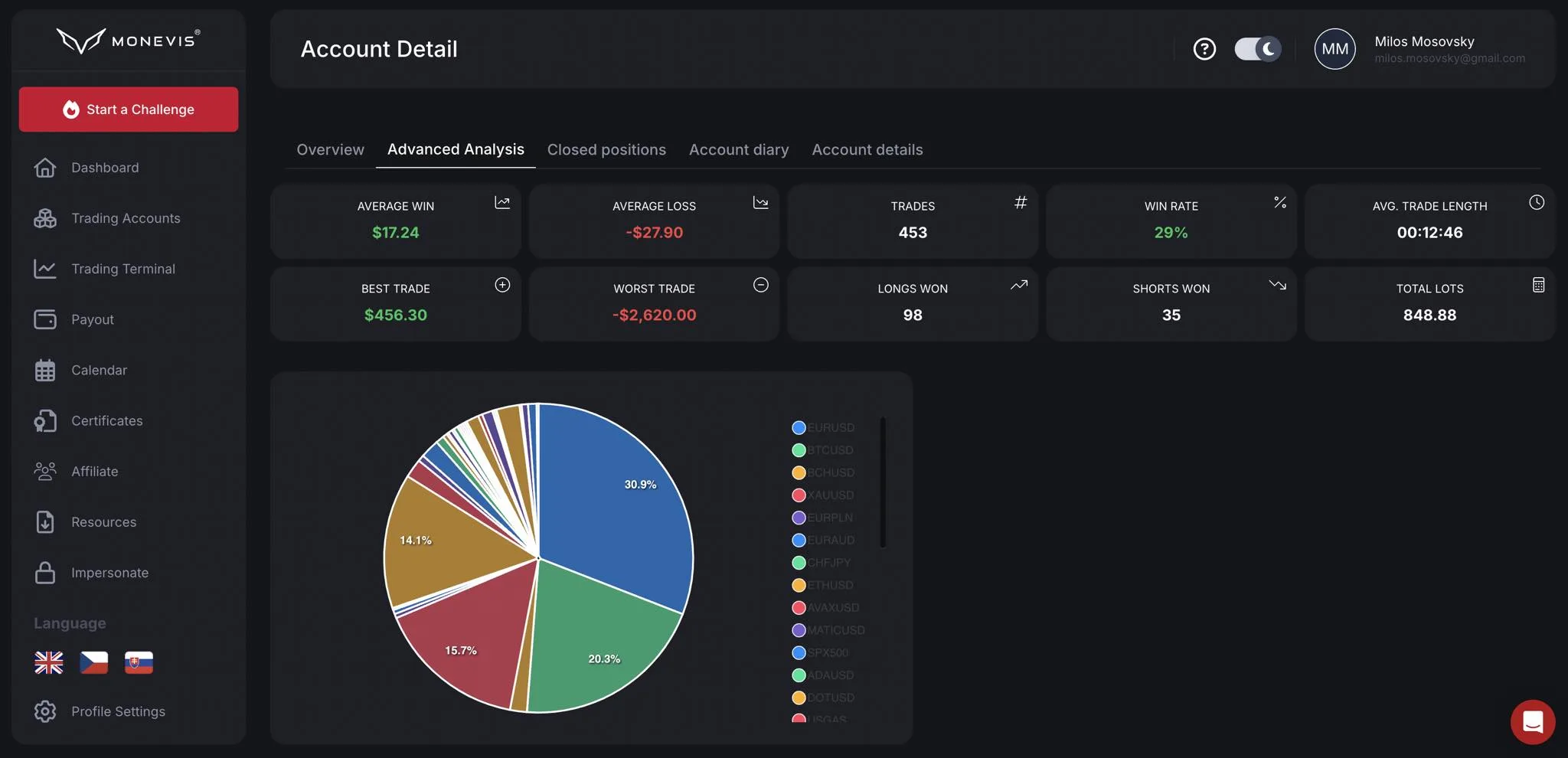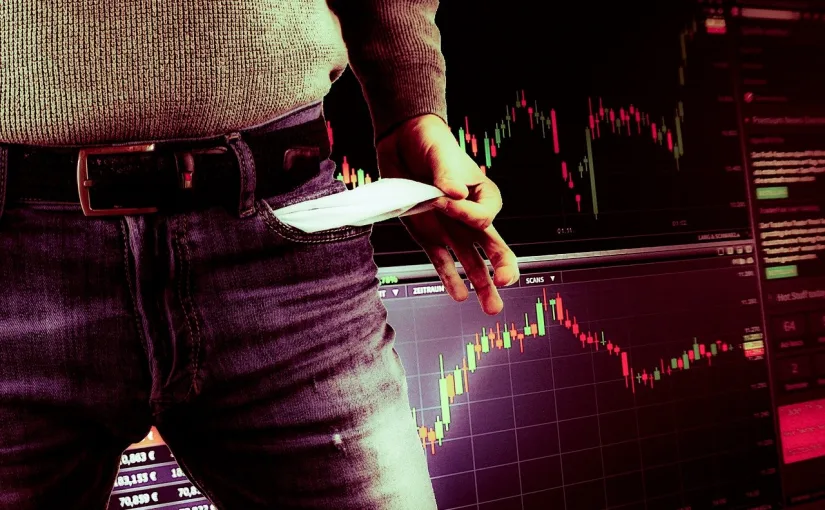DICA QUENTE: Libere seu potencial de negociação com Monevis®.

Greed in Trading: The Enemy of a Successful Trader
1. Introduction: Greed as a Natural Human Trait
Greed is one of the oldest human traits, and it can lead to reckless decisions, especially in situations involving money. In trading, greed can be particularly dangerous, as markets are volatile and constantly shifting. A trader who succumbs to greed risks losing not only money but also control over their strategy. Whether you’re a professional or a beginner, greed can be an invisible adversary undermining success. The goal of every trader should be to recognize and control this emotion, ensuring it doesn’t become an obstacle to long-term profitability.
2. How Greed Manifests in Trading
Greed often manifests in trading in several key ways, all of which can negatively impact trading results:
- Holding positions for too long: When a trader opens a position and the market moves in their favor, greed can tempt them to hold the position longer than is safe. The hope of securing even bigger profits may backfire when the market reverses direction, turning gains into losses. For example, ignoring a predetermined exit point to chase higher profits can lead to the loss of both gains and, potentially, capital.
- Overconfidence after a winning streak: Traders who experience several consecutive profitable trades may become overconfident, believing they have an “unbeatable” strategy. This overconfidence often leads to reckless increases in trade size or abandoning the original trading plan altogether. The outcome is typically disastrous, as markets are unpredictable, and no strategy is infallible.
- Neglecting risk management: Greedy traders often disregard the basic principles of risk management. They may add to losing trades, attempting to “rescue” a position, which is a major mistake. Instead of acknowledging the loss and closing the position, they continue to risk more of their capital.
3. The Negative Impact of Greed on Trading Performance
Long-term trading success depends not only on technical analysis and a solid strategy but also on psychological discipline. Greed is an emotion that can disrupt this balance. Here are some of the main consequences of greed:
- Loss of discipline: Trading success lies in sticking to a plan. However, greed often causes traders to improvise, abandoning their strategy in favor of chasing immediate, higher profits. Ultimately, the loss of discipline leads to poor decisions, which can be irreparable.
- Increased risk of losses: When traders ignore their plans and aim to maximize profits, they automatically increase their risk. For example, if a trader increases the size of their position beyond what was initially planned, even a minor market correction can wipe out a significant portion of their capital. By sticking to the original plan, traders could have secured stable, but reasonable, profits.
- Psychological pressure and stress: Beyond financial losses, greed creates mental strain. A trader constantly chasing profits and refusing to close positions experiences stress that can negatively affect both physical and mental health. Trading should be as rational a process as possible, but under the influence of greed, it becomes an emotional rollercoaster that drains energy.
4. How to Avoid Greed in Trading
Greed can’t be entirely avoided, but it can be controlled. Here are some techniques to help traders manage their emotions and trade rationally:
- Maintain discipline: The foundation of successful trading is strict adherence to a trading plan. When a trader has pre-set entry and exit points, they should stick to them, regardless of how tempting it might be to hold a position for longer. Respecting your strategy, even when the market looks enticing, is crucial.
- Set realistic goals: Traders should have clear objectives for each trade – how much they are willing to risk and what profit they expect. Realistic and consistent goals ensure that trading isn’t just about chasing maximum profits but is a balanced activity with manageable risks.
- Self-reflection and trade analysis: After each trading day or week, it’s helpful to review trades. Where did the trader make mistakes? What emotions were at play? Self-reflection is a key step in improving not only the technical aspects of trading but also emotional management.
5. Conclusion: Balancing Profit and Emotional Control
Successful traders understand that trading is about long-term stability, not quick riches. Greed can be tempting, but its consequences are often destructive. In trading, it’s essential to maintain control over emotions and make rational decisions. No matter the phase of the market, a trader who understands their limits and sets firm boundaries will ultimately succeed over time.
DICA QUENTE: Libere seu potencial de negociação com Monevis®.

